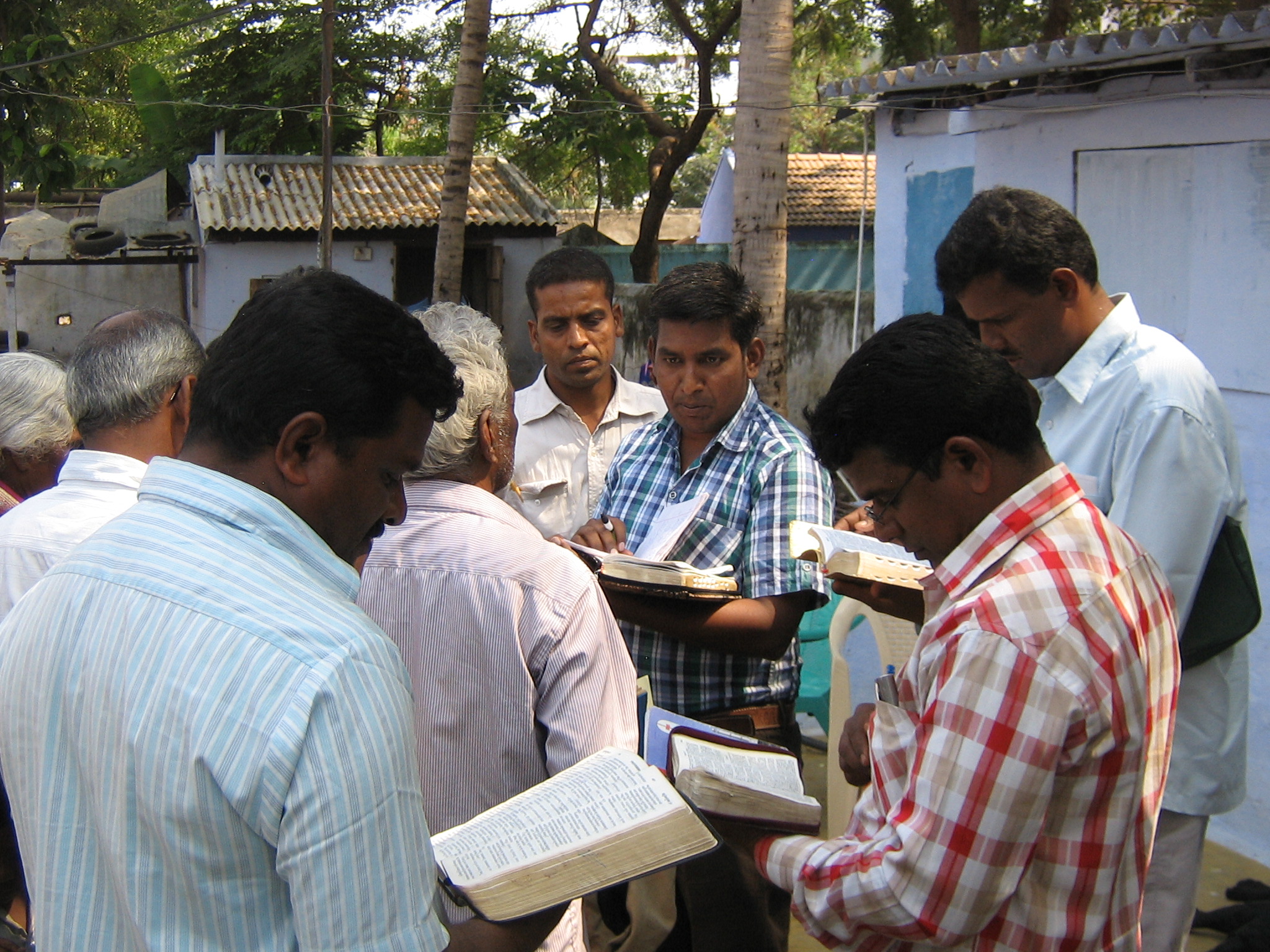
A Third Way: Shifting the Paradigm of Formal Theological Education
April 18, 2017
How do you dream bigger?
April 21, 2017Theological Engagement in Pastoral Training

Theological Engagement in Pastoral Training (with special reference to Paul)
by Dr Willem G. Semmelink
Michael Rogers (2015) [1] argues in his dissertation that local churches have the primary responsibility for training future pastors. If this be the case, then the church should play a major role in the student’s formation and preparation for the ministry. In many seminaries, work-integrated learning is brought into the curriculum to ensure that students are prepared for the responsibilities in the ministry practice.
In Pastoral Training, the emphasis should be on both the scientific and the relationship, the objective and subjective. Theology cannot just be theory but neither can it only be practical; the one should complement or enrich the other. If we cannot practice what we preach (as the Pharisees in Biblical times) or if we practice anything that sounds good enough without any theoretical principles and guidelines derived from the Scriptures, then theology is no longer focused on God, His Kingdom, His Word and His Service.
Practical Theology brings method, research and theology to assist the person in his or her ministry in the church or on the mission field (Tucker 2014:230). According to the research done in preparation for the Global Proclamation Congress for Pastoral Trainers (GProCongress, 2016), it was found that ninety-five percent (95%) of pastors had limited or no formal theological training. Without engagement in theology the pastor is not able to provide sound guidance and teaching to the people God has entrusted to him or her.
Paul was an influential leader in the Early Church. His upbringing in the Greek-Roman context of Tarsus, his training as a Pharisee, his experience on both sides of the church—as persecutor and as servant-martyr—prepared him to integrate his theology into the development of the leaders and the education of the church within the socio-economic and political context of his time. In this article, I would like to highlight some of the principles found in the letters Paul wrote that could assist or motivate pastors to engage in theology in preparation for their pastoral ministry. From Paul’s letters we can derive principles for pastoral training such as spiritual formation, leadership development, theological reasoning based on Scripture, emphasizing the relationships in pastoral care, dealing with cultural and religious conflict and advising the church on how to conduct themselves in a political climate that is hostile to the Christian faith.
Principles in pastoral training from Paul’s Letters include some of the following. It would be impossible to explain every aspect in detail. In this article my aim is to stimulate the reader to give the matter more thought.
- Integrating Scripture in setting the philosophy or doctrine (Romans)[2]
In the letter to the Romans, Paul shares his theological thinking, his hermeneutics of dealing with his new-found faith that Jesus is the Christ, the fulfillment of God’s promises and the prophecies made about Christ in the Scripture. He tries to clarify God’s covenant with the descendants of Abraham and the incorporation of people into this covenant who are descendants from other nations (Gentiles). In his letters he deals also with the changes in the Old Testament rituals, such as offerings, festivals and circumcision.
If we do not engage the Scripture in our theological thinking, we will be diverted from the truth and incorporate other philosophies that have been developed over centuries. The Scripture according to Paul (2 Timothy 2:2,15 & 3:16-17) sets the parameters in which we should develop our doctrines.
- Spiritual Formation (Ephesians)
In his letter to the Ephesians, Paul emphasizes the purpose of leadership in the church. Over and above mentioning the diversity of leadership, he focusses on the role and responsibility of leadership to build up the people in their faith and to equip them for ministry (Eph. 4:11-16). The ultimate goal is to assist the person to spiritual maturity, which is compared to the ‘full measurement of Christ’ – the idea is to assist the person to become more and more like our Lord, Jesus Christ.
If our pastoral focus is more on programs and certain rituals in the church than on the purpose of spiritual formation, then we lose out on the content, purpose and the quality of being the Church in our context.
- Leadership Development (Pastoral Letters)
Paul’s letters to the Thessalonians, Timothy, Titus and Philemon focus much on the structuring of the Early Church. The development of roles and responsibilities for different role-players (e.g. elders or bishops, deacons, women, family, even youth and employees) were laid down.
Paul’s manner of training was a vocational training based on setting a good example. By working together, Timothy, Titus and others learned from Paul. Paul entrusted some of his responsibilities to them, especially when he was incarcerated or went on to the next place to plant another church. They would represent him or would structure the congregation by appointing leadership [3].
- Paul gave clear guidelines in choosing leadership. By appointing leaders, he would delegate responsibilities to these new appointees.
- Paul compiled a code of ethics to ensure that the quality of the Christian leadership was kept intact.
- Through moral support and motivation, Paul strengthened the leadership of Timothy, Titus, Silas and Philemon. This he also did in the congregations to whom he wrote letters: Rome, Galatia, Ephesus, Colossae and Thessalonica.
- Pastoral Care (Colossians)
Relationships (Ephesians 5:1-6:9)
- God
- Marriage
- Parenting
- Work relationships
- Conflict & resolutions (Galatians 3:23-29)
- Religion
- Culture
- Socio-economics
- Government, laws & regulations (Romans 13; 1 Timothy 2:1-8; Titus 3:1-2)
- Hostility and persecution
- Conflicting laws & regulations
Conclusion
Whether we have had the privilege of being trained formally (seminary) or informally (vocational training) we need to continue to engage theologically by reading books and articles on the issues of the day, the complexities of ever-growing cosmopolitan communities, and the challenges of the current socio-economic, political and climate change. We need to ensure that, like Paul, we always revert to the Scriptures, to ensure that what we read or hear is based on the Biblical principles. This was the foundation for the Church in Berea (Acts 17:11) who ‘were of more noble character than those in Thessalonica, for they received the message with great eagerness and examined the Scriptures every day to see if what Paul said was true.’
A century ago, the pastor was one of the most qualified people in his or her community being able to read and write, interpret and preach from the Word of God (the Bible). Today the modern community is exposed to knowledge (true or false) through the Internet and social media. They too can read and write and some are able to interpret and preach (truth or a lie) very convincingly. We need to ensure that our theology is based on a biblical hermeneutics (sound interpretation of the Bible) that can underline the truth, theologically and scientifically.
[1] Abstract of paper: Holistic pastoral training: Strategic partnership between the seminary and the local church in the United States by Rogers, Matthew A., Ph.D., SOUTHEASTERN BAPTIST THEOLOGICAL SEMINARY, 2015
[2] Romans 2 on circumcision; Romans 3 on righteousness; Romans 4 on God’s covenant; Romans 5 on Justification
[3] 1 Timothy 3:1-13; Titus 1:5-9

About the Author
Dr Willem G. Semmelink graduated from the University of Pretoria (South Africa) with a B.A.; B.D. and a Diploma in Theology (1975 to 1982). In May 1994 he received a DTh. in Practical Theology with a thesis on the use of music in a free-liturgical worship service from the University of South Africa (UNISA). Currently he is the Head of the Undergraduate School at the South African Theological Seminary (SATS) an online accredited tertiary institution with students in +- seventy countries. He is married to Rina and they have three daughters – Marianne, Tani & Righardi. He is involved in the Holistic Child Development in Africa, and he serves on the board of the Association of Christian Religious Practitioners that oversees the vocational training in the ministry.



2 Comments
This a good [opportunity]. We are pray[ing] for full feel requirement.
God bless.
Rev.James Tokon Das from Bangladesh
Thank you Rev. James for your continuous prayers!